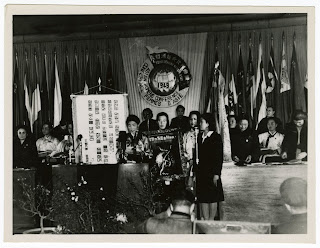First they came...

Amidst some murmurings among some circles in the Sri Lankan capital about how Venezuelans are pleased at what happened, we have the above very disturbing news post in a premier Sri Lankan English Language newspaper that describes Trump's aggression in Venezuela and the involuntary extradiction of its President and his wife as "daring". The JVP, the main party in the NPP coalition, condemned the action in a statement ( translated into English by Ada Derana ). They had condemned similar aggression in 2019 with a protest outside the US Embassy. Our Sri Lankan government seems t o be playing safe. The Foreign Minister has suggested that the government's position is that necessary action should be taken at the UN General Assembly against violations of the UN Charter and its fundamental principles. The South African government has called on the UN Security Council to act. But several governments have condemned the aggression...



.jpg)
